A group of women has bridged differences towards peace in Syria
Date:
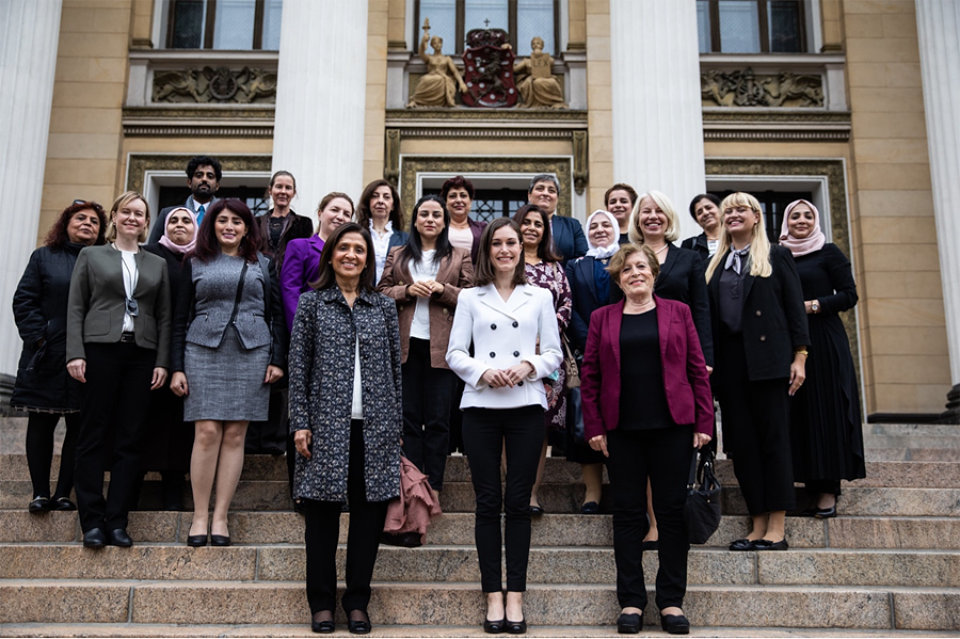
To commemorate the 22nd anniversary of the landmark Security Council resolution 1325 on Women, Peace and Security, UN Women is shining a light on remarkable women who have pursued unity and peace against all odds. One such group is the Syrian Women’s Advisory Board (WAB), a unique body of 15 women who have overcome their political and geographical divisions in their quest for lasting and inclusive peace in Syria. The WAB advises the Special Envoy of the Secretary-General for Syria Geir O. Pedersen and his Deputy Najat Rochdi on elements related to the Syrian political process.
Since the beginning of the conflict in Syria, women and women-led organizations have played instrumental roles in rebuilding social peace and cohesion in their own communities. They have led political and peace movements, coordinated humanitarian and relief initiatives, secured access to education, participated in local governance and provided livelihood opportunities to those in need. Skillfully navigating social norms, political sensitivities and security risks, Syrian women have also mediated ceasefires, brokered the release of detainees and secured access to humanitarian aid. These vital contributions are all the more significant given the limitations placed on women’s public and community participation.
The first women’s advisory board to a UN Special Envoy:
Despite their myriad contributions to peace in their own communities, Syrian women’s direct participation in UN facilitated negotiations that began in 2012 has been constrained. Following years of efforts and advocacy by Syrian women’s rights activists for a direct and meaningful role in the peace talks, the Office of the Special Envoy of the Secretary-General for Syria (OSE-Syria) partnered with UN Women to create the WAB in 2016. It was not only the first structure in the context of the political process to have brought together women from across the political divides, but was also the first women’s advisory board to be established by a UN Special Envoy.
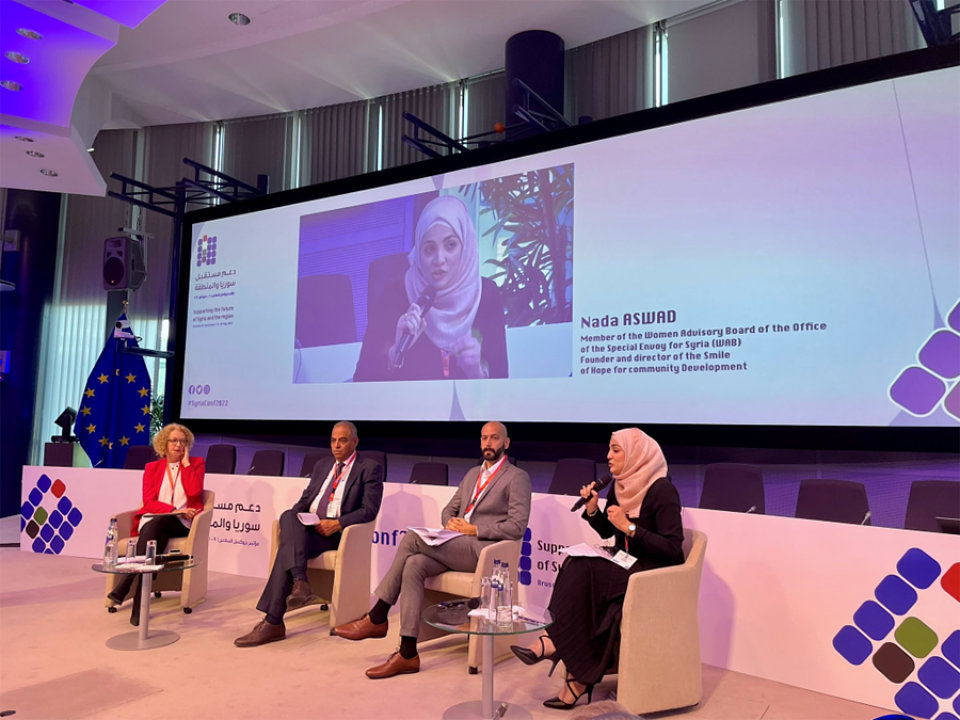
“The Women’s Advisory Board is in fact a Syrian-led space with international reach that allows women of different geographies and political and ideological leanings to negotiate issues related to the political solution in Syria regardless of their differences,” says Dr. Nada Aswad, current WAB Chair. “We provide realistic advice to the UN Special Envoy from the perspectives of women who are connected to the ground and who struggle to pursue a political solution and achieve women’s rights, the rule of law and justice. As such, the WAB has a multi-level mediation role.”
Made up of 15 active politically diverse women from across Syria, the Board provides policy advice on all aspects of the peace process and on the situation of Syrians, inside and outside the country, with a gender perspective. To do so, the Board and the Special Envoy and Deputy Special Envoy engage regularly both during and between formal talks. During these consultations, the Board raises issues missing from the agenda, addresses key points of contention and offers creative solutions to them, proposes gender responsive perspectives, channels relevant civil society expertise, and makes recommendations to help advance the peace talks. Since 2016, the Board’s analysis and advice have featured prominently in the Special Envoy’s high-level engagements, and in nearly all of his briefings to the Security Council, the Envoy has highlighted the importance of policy advice provided by the Board to his mediation efforts.
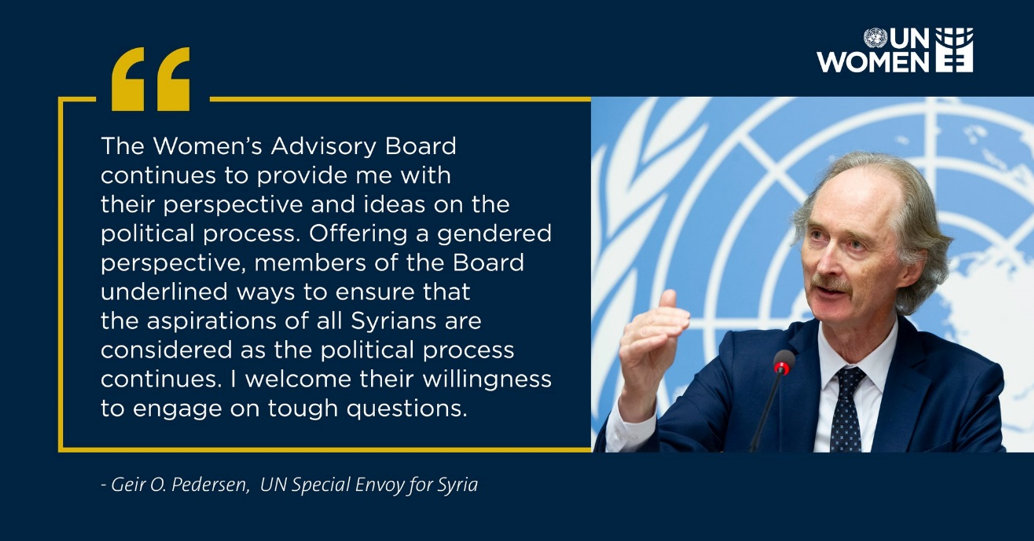
Bridging differences in pursuing peace:
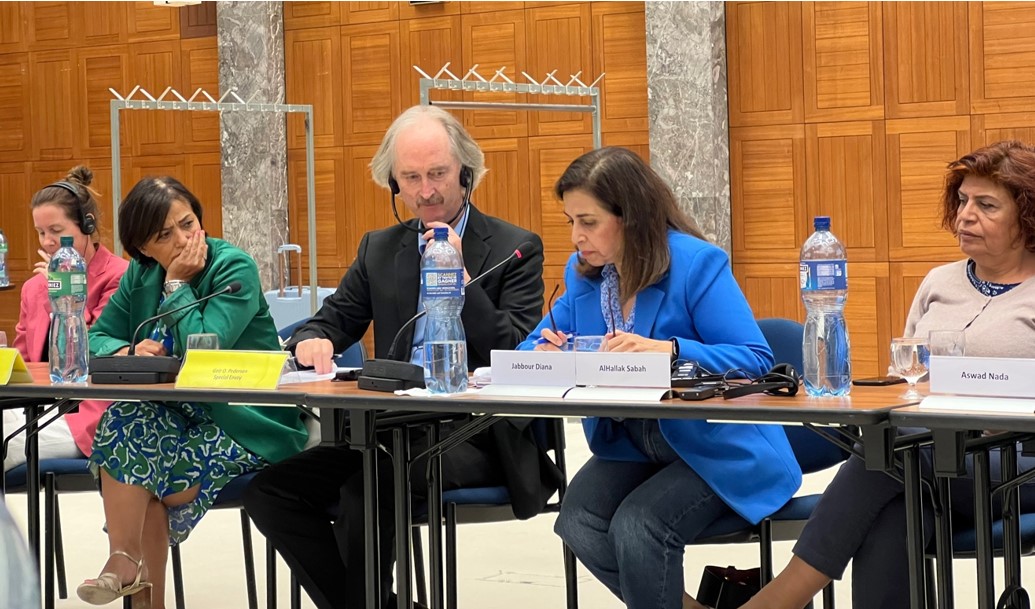
Hailing from different political leanings, geographies and communities, the Board members continue to address their own differences. Working together has provided an opportunity to “demystify one another,” and the members quickly came to understand that as a coalition they had the ability to help make sense of the complex dynamics that were emerging across the country, and propose solutions to address them. Thanks to their deep knowledge of, and connection to local communities and parties, the Board members have advised the Special Envoy’s outreach and engagement with diverse parties and actors to reach common positions.
“I think that the Advisory Board is now respected by the majority of parties involved in the Syria talks. The Board provided [the Special Envoy] with unique suggestions, proving the Board’s understanding of Syrian women’s perspectives. Additionally, the Board is the only [body] that brings together Syrian women of various backgrounds who share one goal, which is ending the armed conflict and building a better future,” says Sawsan Zakzak, a founding member of the WAB.
Advocating for inclusive peace:
The WAB has been instrumental in advocating for an inclusive peace in Syria. Since 2017, the Board has participated in the annual Brussels Conference on Supporting the future of Syria and the Region and regularly briefed the Representative of the European Union for Foreign Affairs and Security Policy/Vice-President of the European Commission on the situation in Syria and how it is impacting women and girls as well as on ways Syrian women can contribute to peacemaking. Year after year, the Board’s insights on how to advance women’s meaningful participation and ensure that the women’s rights agenda remains core to the political process have featured on the conference’s outcome declarations.
In recent years, UN Security Council members have also highlighted the WAB’s importance. For example, Ireland’s Representative to the Security Council welcomed “Mr. Pedersen’s ongoing consultation with the Women’s Advisory Board. It is essential that the [Constitutional] Committee have a clear understanding of the gendered effects of the current situation.”
The Organization for Security and Co-operation in Europe Toolkit on the “Inclusion of Women and Effective Peace Processes” also cites the WAB as a good practice and recommends that mediators consider “establishing an advisory board that will provide additional perspectives on the issues under discussion and make recommendations on the process” whilst ensuring any such board complements other efforts to increase women’s meaningful participation. In fact, the WAB has also inspired the establishment of other advisory structures within the region and beyond, including the Yemeni Technical Advisory Group and the Iraqi Women Advisory Group.
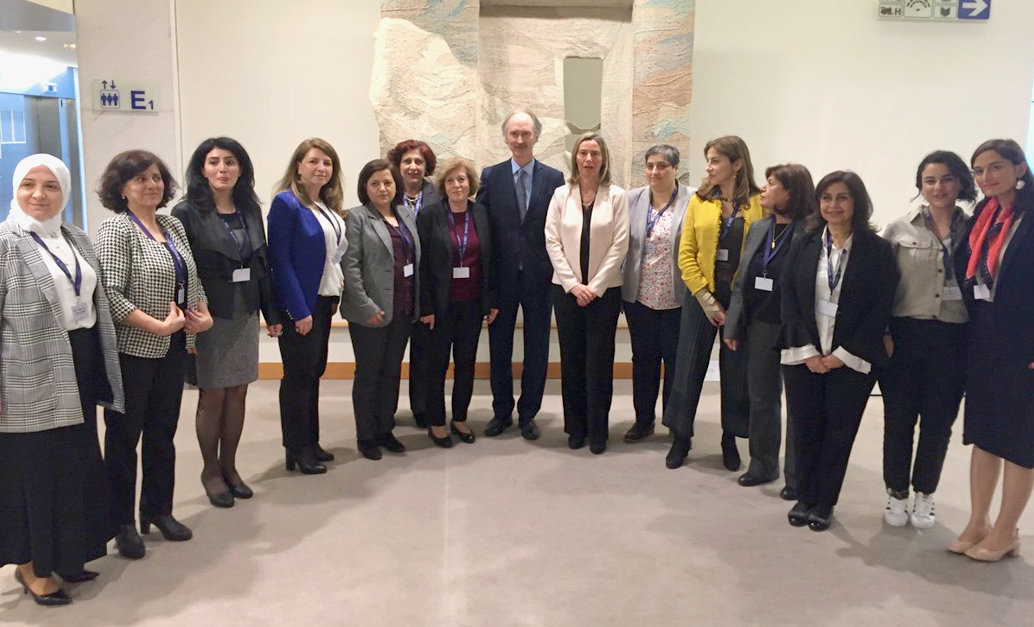
Amplifying women’s voice in the political process:
“In Syria, women are still associated with family and the domestic domain”, says WAB member and Islamic feminist Asmaa Kftarou. “But when conflict starts, exclusion gets worse. And they always attribute this exclusion to heritage and religion. While as a Muslim, I see that it is part of my heritage, my religion for women to be equal partners.”
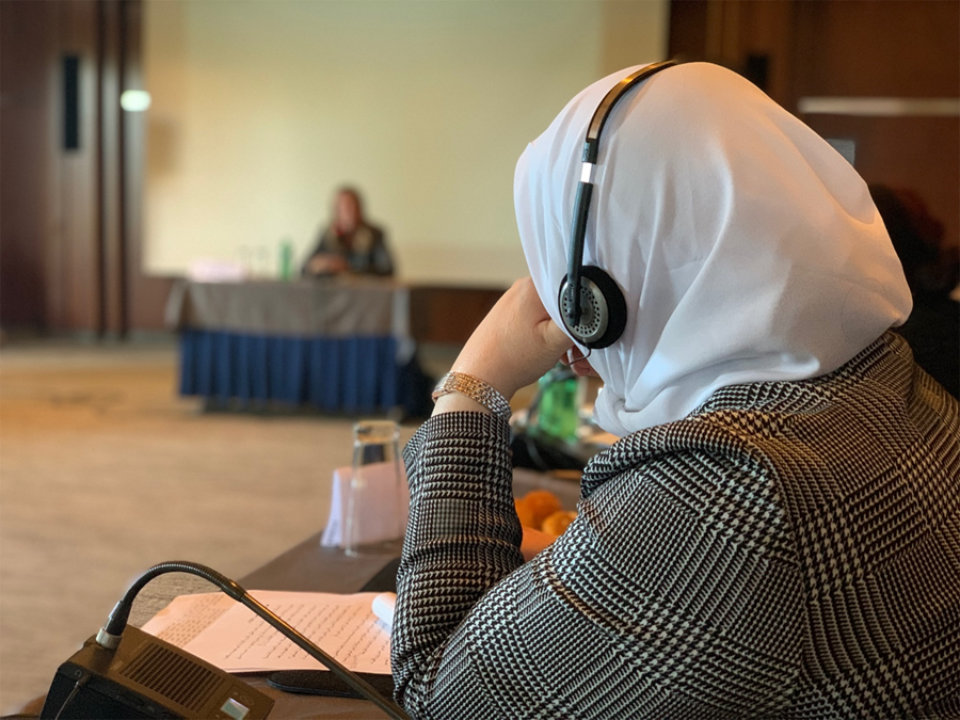
Despite the Board’s consistent calls for a minimum 30 per cent women’s direct participation in all decision-making structures within the political process – until parity is achieved - Syrian women remained dramatically outnumbered in the UN-facilitated process, making up a mere 15 per cent of the opposition and government delegations at the December 2017 intra-Syrian talks in Geneva.
But in 2019, Syrian women’s representation saw a breakthrough with nearly 30 per cent of women appointed to the Syrian Constitutional Committee, a key platform of the UN-facilitated Syrian-led, Syrian-owned political process to achieve a genuine and lasting peace. Accounting for the largest number of women in any peace negotiations in the Middle East, this participation offers a real window of opportunity for Syrian women to contribute to efforts to bring peace back to their country. The WAB has been instrumental in paving the way for this achievement, and two of its members, Ms. Raifa Sami’ and Ms. Sabah Hallaq, are now part of the Constitutional Committee. A champion of civil society’s engagement in the political process, the WAB was one of the first actors to call for a third delegation to the Constitutional Committee, representing diverse civil society actors.
From the outset of the committee’s work towards a new constitution for the country, the WAB has supported some of its members with technical inputs to ensure that the future constitution enshrines women’s rights .
Deepening roots in local communities:
To root its work deeper in local and diverse communities in Syria, the Board has expanded its membership to better represent grassroots communities, and is more actively reaching out to communities and sharing information on the political process. The Board has also been working to increase avenues for civil society to engage with Syrian women leaders and influence the political process.
“The international community’s support to Syrian civil society is essential”, says Dr. Nada Aswad. According to her, such support will “give some hope to all those voices in need of being heard.”
No alternative to women’s direct participation:
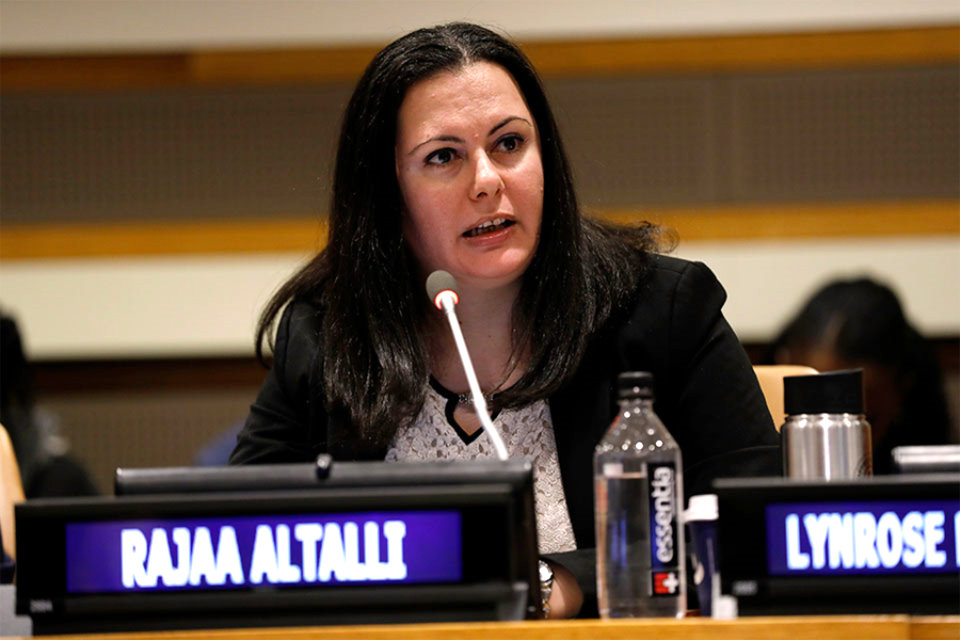
Since its creation, the Women’s Advisory Board has actively accompanied and influenced the different phases of the political process, including the Vienna conferences, the development of the 12 Intra-Syrian Essential Principles for a political settlement and the formation of the Constitutional Committee. Indeed, the Board has made strides in amplifying women’s voices and channeling their concerns and aspirations into mediation efforts - but it is no alternative for women’s direct contribution to the peace process in Syria.
“The Syrian Women’s Advisory Board has been a pioneering mechanism for women in the process for peace. It’s not all we want, but it’s a step forward,” said Rajaa Altalli, WAB Member. “It’s great we have UN Security Council resolution 1325 and other [international agreements] that promote women’s participation in peace processes, but it shouldn’t be a fight every time to get a quota for women or get meaningful participation for women in peace processes.”
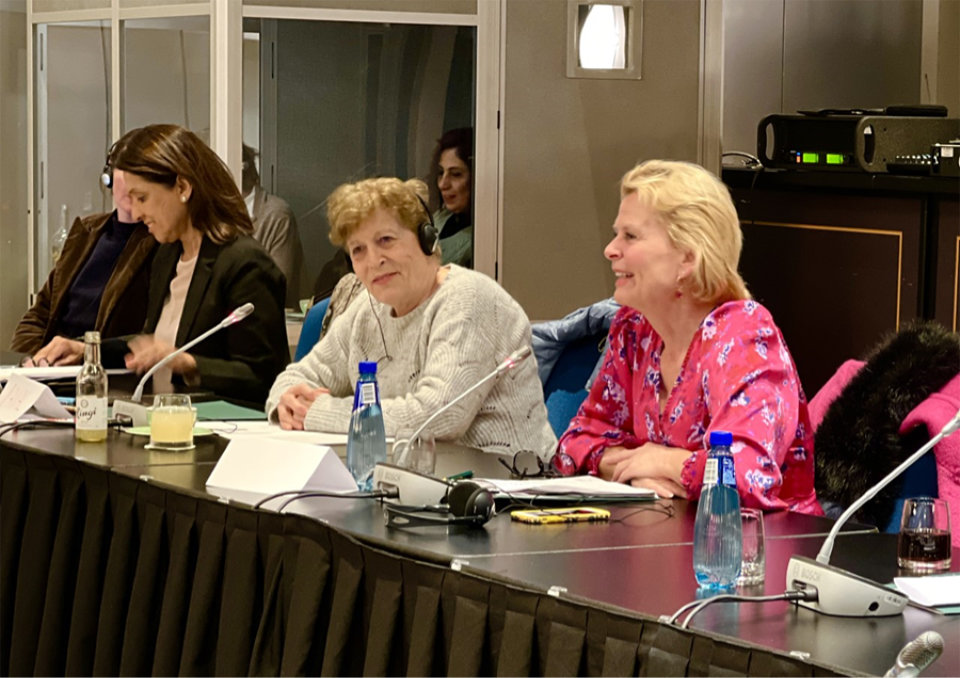
Since its establishment in 2016, the Women’s Advisory Board has benefited from UN Women’s unwavering support, in partnership with OSE-Syria, to strengthen its contributions to the political process. This has allowed the WAB to serve as a bridge between diverse Syrian women and communities across the country and the political process. This would not have been possible without the support of UN Women’s partners, including the Governments of Finland, Norway andthe Netherlands, and the European Union.